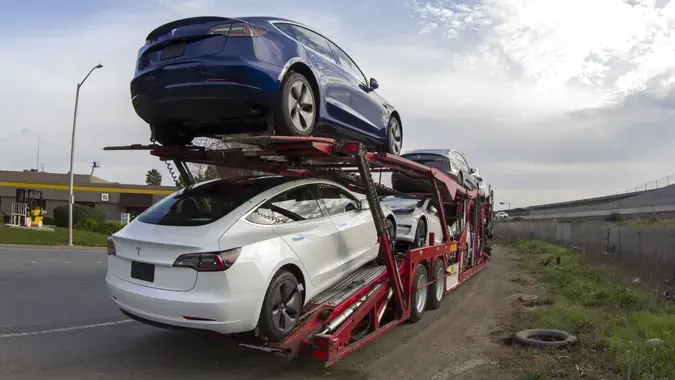If former President Donald Trump is elected to a second term in the White House this year, the auto industry may face another transformation. While President Joe Biden has made the transition to electric vehicles a cornerstone of his administration, Trump appears determined to reverse many of Biden’s EV policies and shift the balance back in favor of gas-powered vehicles. However, it is unclear whether (or how much) he will succeed.
The Inflation Reduction Act and the Bipartisan Infrastructure Law, two significant pieces of Democratic-led legislation that Biden passed, significantly benefited the EV and battery industries, as S&P Global noted in a January report.
Both bills set aside billions of dollars for clean energy initiatives such as a national rollout of EV charging infrastructure, expanded tax credits for electric vehicles, and federal loans and subsidies to retool existing auto factories and retrain workers.
If Trump is reelected, he may seek to weaken these laws and reduce or eliminate federal funding for the EV industry, according to S&P Global. “A reversal or reduction of federal subsidies could cause OEMs, suppliers, and battery companies to rethink their product and investment strategy, particularly as it relates to North American sourcing,” the authors of the report said. This, in turn, could have an impact on both the gas-powered and electric vehicle sectors, benefiting the former while harming the latter.
One of Trump’s central campaign themes is that “nobody wants to buy” electric vehicles, according to the Detroit Free Press. However, the facts do not support this viewpoint. According to the Free Press, while demand for EVs has slowed, sales are still increasing.
According to Cox Automotive’s Kelley Blue Book, 1.2 million EVs were sold in the United States in 2023, a record. EV sales in the fourth quarter set records for both volume and market share, with 317,168 and 8.1%, respectively. Fourth-quarter EV sales increased 40% over the previous year, which KBB described as a “strong result by any measure,” despite admitting that “the oft-reported slowdown is real.” That slowdown is primarily the result of the EV industry facing increasingly difficult year-over-year comparisons.
If Trump succeeds in reducing Biden-era incentives while boosting the gas-powered auto industry, EV sales may suffer temporarily. He intends to accomplish the latter by easing emissions standards imposed by Biden and opening up more of the country to oil and gas drilling.
The wild card is how effective Trump will be in transforming an automotive industry that has already advanced to the next stage of its evolution. According to the Free Press, if he is elected and takes steps to slow the EV industry’s momentum, China could seize global leadership of the EV market, leaving the United States and Europe far behind.

